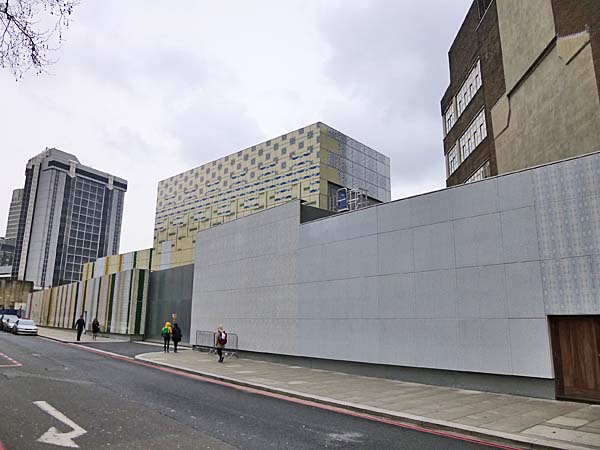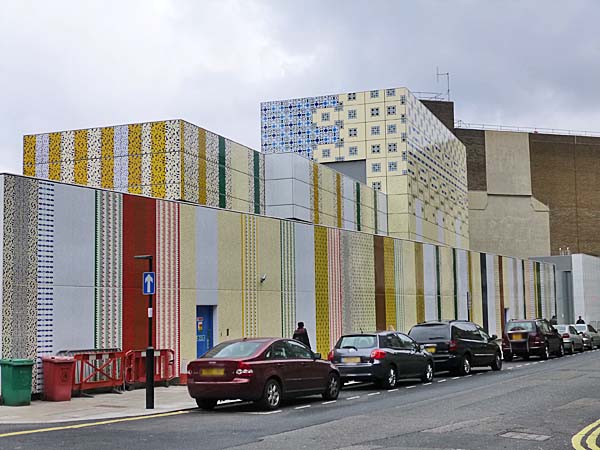| Architect |
Pringle -
Richards - Sharratt |
| Date
Built |
2013 |
| Location |
Chapel Street |
| Description |
|
| This remarkable structure
on Chapel Street, adjacent to Edgware Road
Underground Station and TFL's Griffith
House, is one of a number of new electrical
substations being added to the London
Underground system to provide the increased
power requirements of the improved rolling
stocks being introduced on the Metropolitan,
Circle, District and Hammersmith and City
Lines. The Burro Happold website
explains that, "The Bulk Supply Point
at Griffith House, a congested central
London site, will be home to hundreds of
tonnes of transformers designed to
improve the connection between the
Underground and the National Grid.
Surrounded by live tracks, a major road,
a bridge and an occupied building,
creating the right structure for this
site was vital. To capitalise on the
available space, our team selected a
sheet piling system for the retaining
structure. By using innovative fibre
reinforced concrete to provide both the
4 hour fire protection and waterproofing
integrity, the need for secondary
reinforcement steel was reduced,
clearing more space inside the building,
speeding up construction and saving the
client money." What makes this particular substation stand out though is the fact that it is also an art installation called "Wrapper" by Jacqueline Poncelet. Pringle - Richards - Sharratt, who were commissioned to design this substation and two others for TFL, say that, "The work, created in vitreous enamel, dresses the building in a grid of patterns developed by the artist. Each pattern relates to a different part of the local area and was made in response to the images and ideas that she has developed through her research there over the past three years. Like an enormous patchwork, Wrapper tells the story of the place in which it sits, weaving together elements from local history and the natural environment, the area’s architecture and its people." TFL explain that, "Depending on where the viewer stands in relation to the artwork, Wrapper reveals a variety of stories. From the platform, for example, the fringe of the station's roof can be recognised in the zig-zag pattern integrated into the work. On the other side of the building, local residents who can view it from their windows, or the people who pass by on foot, will see many more elements from the local area: the detailed tracings of leaves reference the trees in Regents Park, while the delicate water pattern suggests the Tyburn stream that runs underground nearby. Seen from a distance or as a fleeting glimpse from a vehicle on Marylebone Road, Poncelet’s patterns, some of which she made from a drawing of cars, will look quite different again. The colours all reflect those of the Tube map, hinting at the building’s connection to it."  |
|
|
Transport
For London Electrical Sub Station, London
 |
